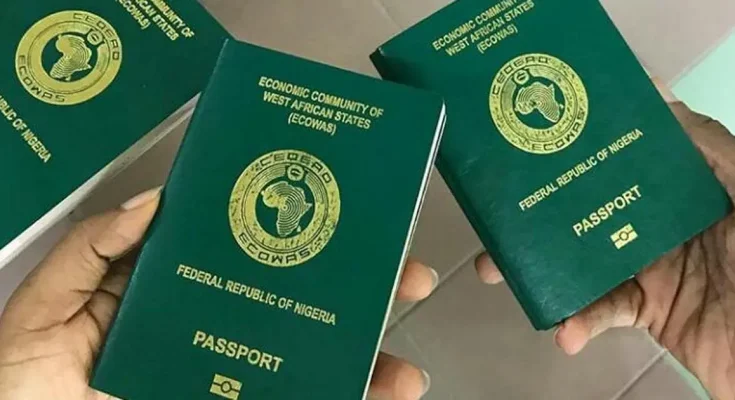Niger Republic Imposes Restrictions on ECOWAS Passport Holders, Citing New Immigration Measures

The Republic of Niger has begun enforcing stringent travel restrictions, barring Nigerians with ECOWAS passports from entering the country without a valid international passport.
This move follows Niger’s recent withdrawal from the Economic Community of West African States (ECOWAS), joining Mali and Burkina Faso in distancing themselves from the regional body.
Despite maintaining an open border with Nigeria, Niger has introduced new immigration policies at key crossing points such as Illela (Nigeria) and Konni (Niger).
The changes are causing significant disruptions for cross-border traders and commuters, as Nigerien authorities no longer recognize the ECOWAS passport as a valid travel document.
Mansur Abdullah, a frequent traveler and trader, expressed his frustration with the situation, noting, “There seems to be an effort to phase out the ECOWAS passport as a legitimate means of travel. We are facing increasing harassment at the border, and some of our people are being turned back.”
Abdullah further revealed that a new passport is being issued to those entering Niger, replacing the ECOWAS passport, a move that has sparked concerns among traders about the growing uncertainty.
A source based in Taiwan, Niger, confirmed that border officials are increasingly denying entry to travelers who rely solely on the ECOWAS passport. “Some of our people have already been sent home, and the authorities insist on seeing a national passport,” the source explained. This has created difficulties for both businesspeople and ordinary travelers trying to navigate the border.
Although the Nigerien government has yet to issue an official statement confirming a full ban on the ECOWAS passport, the uncertainty surrounding the policy has caused fear among affected travelers and traders.
ECOWAS Commission Head of Communication, Joel Ahofodji, revealed that the regional body was unaware of Niger’s decision to impose such restrictions.
The development raises concerns about the future of regional trade and the free movement of people within West Africa, as this move could have broader implications for cross-border relations. As tensions rise, it remains to be seen how both the ECOWAS body and individual countries will respond to the shifting dynamics in the region.





